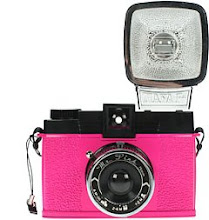
Walter Grutchfield is an archaeologist of signs. He has set himself the task of photographing every old sign in Manhattan between 14th and 42nd Streets, a 300-block area containing some of the most densely inscribed buildings in the world.
Mr. Grutchfield's specialty is what he calls the wall-painted sign—what others call mural signs or "ghost signs"—which are advertisements painted in huge letters across buildings. Most of these advertisements were painted more than 50 years ago. Once a business dies, moves or wants a new image, old advertisments are seldom saved.
As he sees his work, Mr. Grutchfield is assembling an enormous jigsaw puzzle, piecing together fragments and vagaries from the tiny trades that flourished in New York before World War II, the world of glass eyes and taxidermist supplies, where small businesses painted their names one on top of the other down to the nearest stretch of exposed wall. Sometimes the search to fill in the blanks of a weathered sign is easy: a company history, a title deed or an old photograph will supply the missing letters. Other times it presents a considerable challenge; in a few cases, the trail has gone entirely cold. But Mr. Grutchfield soldiers on.
The Hotel Irvin for Women was named for Mary M. Irvin, president of the organization that worked for many years to create this residence. As early as 1916 the group planned a hotel "where self-supporting girls and women with small incomes could be accommodated comfortably and well at little cost." (NY Times, 1916.)

The Martha Washington Hotel, 29 E. 29th St., was built in 1902 as a hotel for women. But, as the sign says, men could eat in the restaurant.

The Griffon Cutlery Works was founded in 1888 by Albert L. Silberstein. They manufactured razors, nail files and a great many types of scissors, including (as the signs say) pinking shears, nippers and manicure sets, as well as "Ladies' Button Hole" scissors. Their trademark registration also mentions embroidery scissors, poultry shears, barber shears, tweezers, pushers, blackhead removers and nose scissors.
(top image) Seely Shoulder Shapes was originally called Seely Shoulder Pad Corp. They were located in this building at 263 W. 40th St. from 1945 until 1955.
:14 to 42


















































